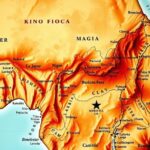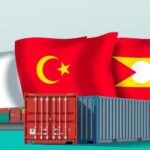AES Imposes Import Duty on ECOWAS Goods, Straining Regional Relations
The Alliance of Sahel States has introduced a 0.5% import levy on goods from ECOWAS countries, effective immediately. This contradicts ECOWAS’s goal of facilitating trade and comes after the three nations’ tensions with the bloc, leading to their exit. Additionally, Niger has withdrawn from the MNJTF, impacting regional security efforts.
The Alliance of Sahel States (AES) has recently initiated a 0.5 percent import duty on goods from the Economic Community of West African States (ECOWAS) member countries. This decision was outlined in a joint statement issued last week, emphasizing the need for revenue generation to support the activities of the AES, which includes Mali, Niger, and Burkina Faso. The new levy, effective from last Friday, will be levied on all goods entering the three nations, with the exception of humanitarian aid.
This policy contradicts ECOWAS’s goal of facilitating free movement of goods among member states, especially following the AES’s official exit from the organization in January. Despite this exit, ECOWAS had previously assured that goods and services from the AES countries would be treated under the ECOWAS Trade Liberalization Scheme (ETLS), which promotes duty-free trade. However, the AES’ 0.5 percent levy introduces a trade barrier that could disrupt supply chains, inflate costs, and undermine the free trade principles within ECOWAS.
Mali, Niger, and Burkina Faso’s departure from ECOWAS was preceded by heightened tensions, with accusations against the bloc for not providing adequate support against terrorism. Though sanctions were imposed by ECOWAS on these nations post-coups, these were eventually retracted. The bloc has since offered guidelines to maintain minimal disruption, including continued duty-free trade and visa-free movement. However, the introduction of the new levy is expected to exacerbate already strained relationships.
In a related development, Niger has also withdrawn from the Multinational Joint Task Force (MNJTF) that combats armed Islamist militants in West Africa’s Lake Chad region. Niger’s official exit from this coalition was announced on state television, reflecting a focus on enhancing security for vital oil infrastructure. This withdrawal could further complicate regional security efforts in an area that faces persistent threats from militant organizations such as Boko Haram.
It is crucial for the stakeholders to assess the socioeconomic implications of such policies and diplomatic decisions on regional stability and security.
In summary, the AES’s imposition of a 0.5 percent import levy on ECOWAS countries marks a significant shift in trade dynamics within West Africa. This policy not only contradicts ECOWAS’s mission of promoting free trade but also poses potential economic challenges for the region. The strained relations due to the exit of Mali, Niger, and Burkina Faso from ECOWAS, and Niger’s withdrawal from the MNJTF, reflect an increasing isolationist stance which may threaten future regional collaboration and security efforts.
Original Source: www.premiumtimesng.com








Post Comment